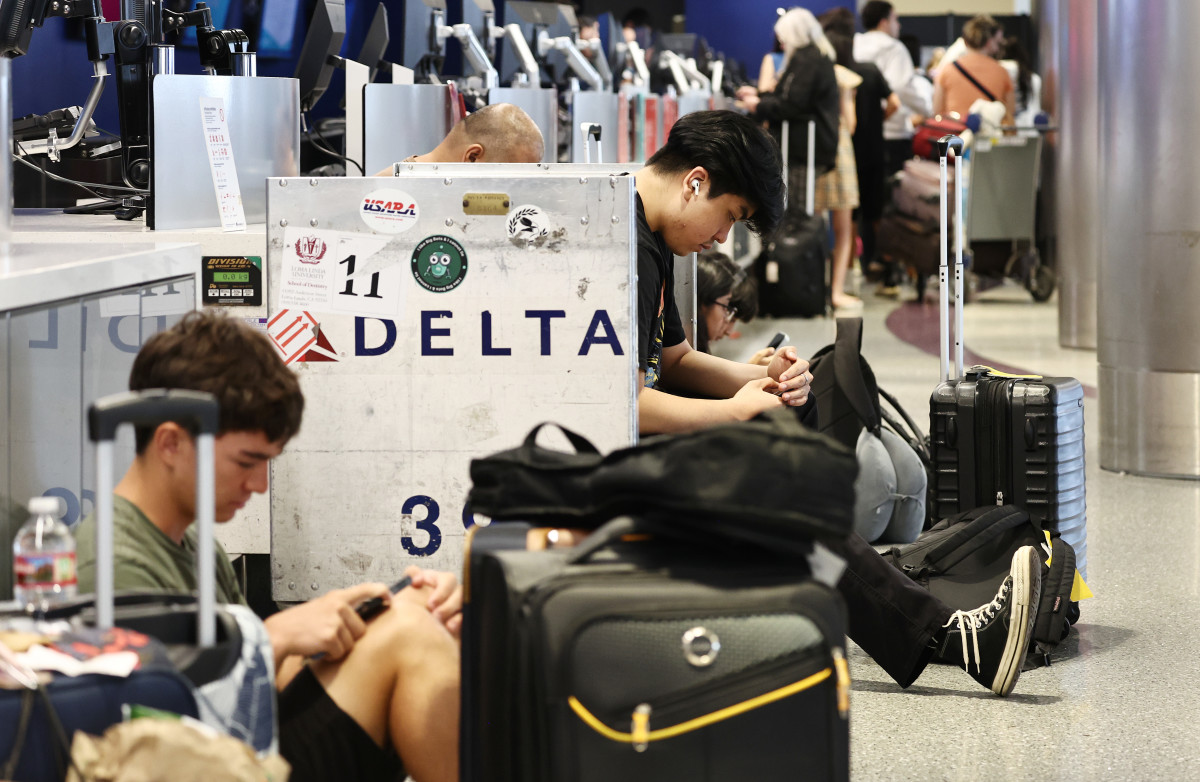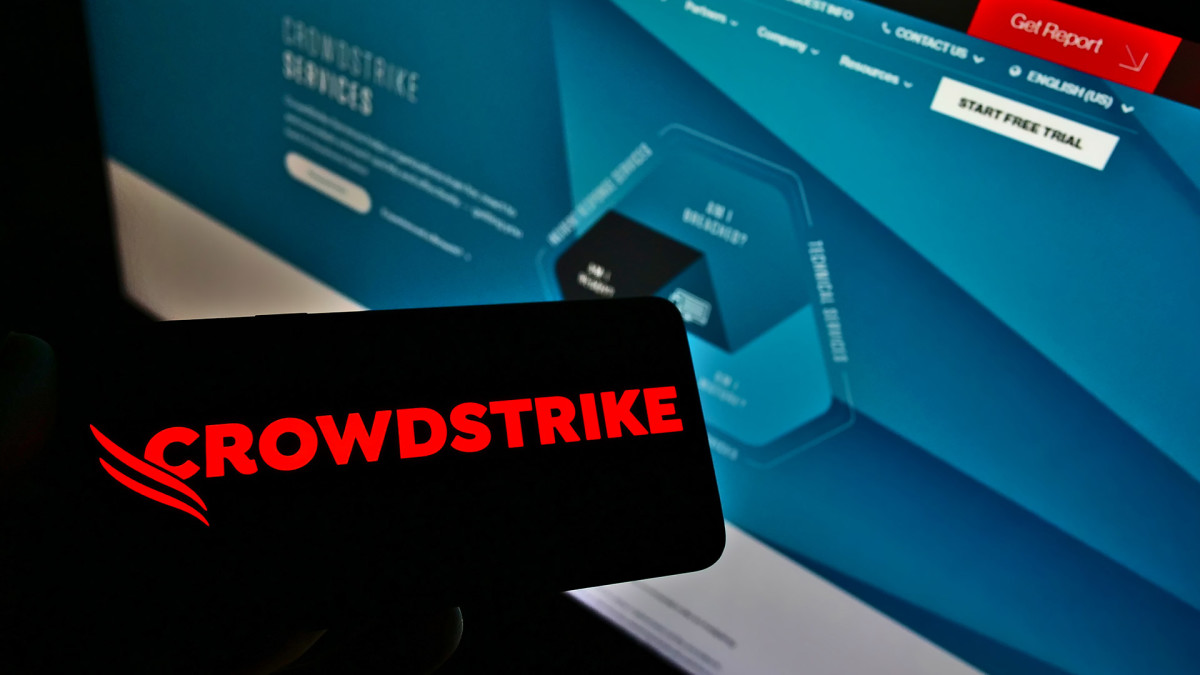
And all for the want of a nail...
There's a poem that describes how something seemingly small can have a tremendous impact if it's ignored.
Variants date back as far as the 13th Century and one version appears in Benjamin Franklin's "Poor Richard's Almanack," but many people may have heard it as follows:
Related: CrowdStrike stock tumbles after update triggers global IT chaos
"For want of the horse, the rider was lost; For want of the rider, the battle was lost; For want of the battle, the kingdom was lost; And all from the want of a nail."
We've come a long way from relying on horseshoe nails and now we put our trust in technology to keep our world together.
That faith was a dealt a severe blow on July 19 when the cybersecurity company CrowdStrike (CRWD) distributed a faulty update to its Falcon Sensor security software, causing widespread problems with Microsoft Windows computers running the software.
The incident has been called the largest outage in the history of information technology, and it affected airlines, banks, hotels, hospitals and government services.

Shutterstock
Companies trade accusations
The worldwide financial damage estimate was at least $10 billion, and the insurer Parametrix said that U.S. Fortune 500 companies excluding Microsoft (MSFT) will face $5.4 billion in financial losses from the outage, with the airline, health-care and banking sectors taking the worst of it.
Accusations and finger-pointing have naturally followed the incident.
Related: Analysts reboot CrowdStrike stock price target following global outage
Delta Air Lines (DAL) said in a regulatory filing that the “CrowdStrike-caused outage” disrupted the carrier’s operations, causing about 7,000 flight cancellations over five days.
“An operational disruption of this length and magnitude is unacceptable, and our customers and employees deserve better," Delta Chief Executive Ed Bastian said in a statement. "Since the incident, our people have returned the operation to an industry-leading position that is consistent with the level of performance our customers expect from Delta."
“We are pursuing legal claims against CrowdStrike and Microsoft to recover damages caused by the outage, which total at least $500 million.”

For the September quarter, Delta said the direct revenue impact of the incident is estimated at $380 million, driven primarily by refunding customers for canceled flights and providing customer compensation in the form of cash and SkyMiles.
Nonfuel expense associated with the technology-driven outage and subsequent operational recovery is estimated at $170 million. Fuel expense is estimated to be $50 million lower as a result of the cancellations, the filing said.
Appearing on CNBC’s Squawk Box, Bastian said Delta had “no choice” but to file the lawsuit and described Microsoft as “probably the most fragile platform."
In response, CrowdStrike’s legal team that “Delta will have to explain to the public, its shareholders, and ultimately a jury why CrowdStrike took responsibility for its actions — swiftly, transparently, and constructively while Delta did not.”
Microsoft's attorney, Mark Cheffo, reportedly told Delta that "our preliminary review suggests that Delta, unlike its competitors, apparently has not modernized its IT infrastructure, either for the benefit of its customers or for its pilots and flight attendants."
Meanwhile, on Aug. 6, a group of travelers sued Delta, claiming the airline's failure to expeditiously recover from the CrowdStrike outage had a “disastrous” impact that left them not only stranded but out thousands of dollars.
The passengers also charged that Delta “refused or ignored” refund requests for canceled or delayed flights, and lost luggage, and even declined to provide them with various vouchers for the inconvenience. The lawsuit seeks class-action status.
Analyst: 'Heavyweight will rebound'
CrowdStrike's share price tumbled immediately after the incident, and Forbes reported at the time that George Kurtz, the company's CEO, saw his net worth drop by about $300 million. The shares fell 39.5% in July.
The company's stock closed on Aug. 9 at $240.90, up 0.2% on the day and up 3.9% so far in August. But it is still off 5.65% year-to-date and down 29.8% from $343.05, its close the day before the outage.
More Tech Stocks:
- Sony’s Bungie criticized for layoffs after CEO spends millions
- Nvidia stock tumbles in tech slump amid questions over key chip
- Analysts adjust Palantir stock price target ahead of earnings
And despite all the bad press, some analysts say that CrowdStrike will come back from the incident and they see an opportunity for investors amid the chaos.
Stifel lowered the firm's price target on CrowdStrike to $300 from $400 and affirmed a buy rating on the shares ahead of the company's second-quarter report, due Aug. 28.
A lot has transpired following CrowdStrike's faulty update on July 19, which has raised a number of questions around the potential impact to the quarter, pipeline, fiscal 2025 guidance, competitive positioning, medium-term growth opportunities, and risk of legal liabilities, the firm said.
Stifel said that its survey and checks "suggest a punch to the face, but this heavyweight will rebound," the analyst added.
Earlier this week, Piper Sandler analyst Rob Owens upgraded CrowdStrike to overweight from neutral with a price target of $290, down from $310.
While the scale of the CrowdStrike-caused outage is unprecedented, historically, outages and breaches have had modest impacts on cyber business fundamentals, Owens said.
The analyst said that even though the near-term news cycle will likely revolve around litigation and settlements, congressional testimony and ensuing numbers cuts ahead of and on the second-quarter report, the ramifications of the event “will likely be more-so short-lived and at negligible cost.”
With the shares down sharply for July, Piper says investors should opportunistically build positions at current levels.
Related: Veteran fund manager sees world of pain coming for stocks







